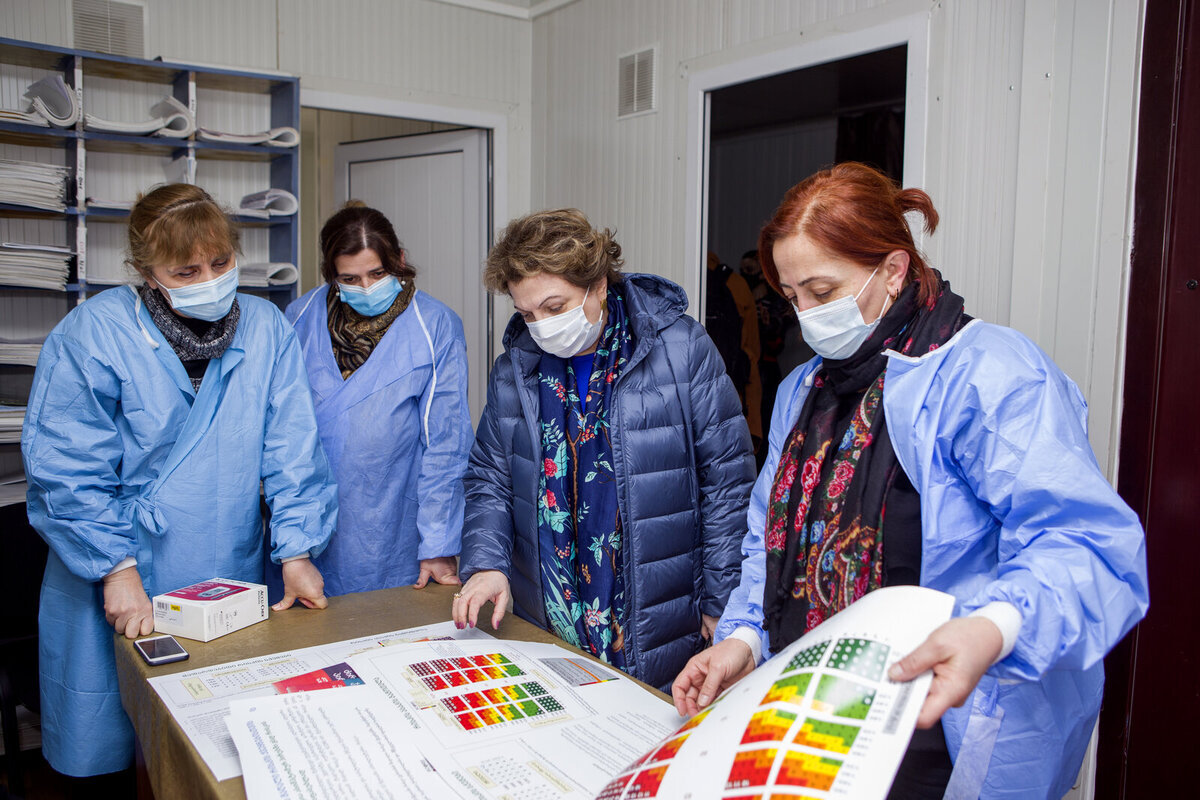The situation in Georgia is tense. Protests against the government’s decision to suspend European integration are escalating, raising concerns about repression and international isolation. How do people on the ground perceive this situation, and how does it affect the work of non-governmental organisations? We spoke about the current events in Georgia with Noemi Seregi, Regional Manager of Caritas Czech Republic.
Georgia is experiencing a wave of massive protests against the actions of the newly elected government. What is the current situation in the country?
The situation in Georgia is highly complicated and tense. The protests began spontaneously on the 28th of November after the Prime Minister announced that the country would suspend its plans to join the EU. This decision caused widespread disappointment and outrage, as over 80% of the population support European integration. Since then, the protests have intensified, and the authorities' response has become increasingly harsh, including the use of water cannons, tear gas, and violence against demonstrators. The situation further escalated with the arrests of opposition leaders, and journalists and media being increasingly targeted.
What triggered the protests?
As I mentioned, the announcement by the Prime Minister to suspend plans for EU accession was the primary trigger. This decision followed parliamentary elections, the results of which are still disputed and questioned by the opposition as well as for example the European Parliament. There are suspicions of election manipulation in favour of the ruling Georgian Dream party. For many Georgians, European integration represents hope for greater stability, justice, and economic opportunities. This decision was perceived as a betrayal, with people feeling that their voices were disregarded. Moreover, the announcement came at a time when the country is already facing challenges such as growing authoritarian tendencies and worsening social conditions.
How are Caritas Czech Republic staff in Georgia reacting to this situation?
Our colleagues find the situation extremely stressful and challenging. As an organisation that supports collaboration with the EU, they perceive this development as deeply painful. When I speak with them, they often express feelings of despair and uncertainty, as the future of their country and our work is unclear. While they do not directly participate in the protests, they feel strong frustration with the political direction the country is taking, as well as fears about the repression of NGOs, which we are witnessing.
How has the current situation affected the work of Caritas Czech Republic in Georgia?
Our work has been significantly impacted by the political developments in the country. Some projects, particularly those that required close collaboration with local government institutions, have had to be adjusted or even suspended. For instance, in the healthcare sector, we previously provided technical support to government offices, which is no longer possible. After the elections, our donors also took a clear stance and decided not to work directly with government entities, forcing us to modify our activities to avoid dependency on government collaboration.
Nevertheless, we continue to support local communities, particularly in areas such as rural development and social inclusion, and we are exploring new ways to ensure the sustainability of our activities without direct ties to state structures. It is challenging, but we are striving to adapt to the new conditions.
Can you at least outline the possible future developments and what they might mean for the future of Caritas Czech Republic in Georgia?
The future is currently difficult to predict. In the coming year, we plan to continue our work, but we will need to be highly flexible and adapt to changing conditions. We will likely focus more on community-based and local activities, such as rural development and social inclusion, which do not require direct cooperation with government institutions.
In the past, for instance, we closely collaborated with the Georgian Ministry of Health on systemic reforms, such as introducing a unified electronic health registry, updating treatment standards, and improving primary care quality, particularly in rural areas. These activities had a significant impact on improving the quality and accessibility of healthcare in the country, but under current conditions, we could no longer implement such projects. The current political situation greatly complicates our work.
Our activities also depend on international funding. If new laws were enacted that significantly restricted international organisations, it could seriously jeopardise our work in the country. Nevertheless, we hope to continue supporting the people of Georgia, even under more challenging conditions.
Georgian non-governmental organisations are in a more difficult position, aren’t they?
Yes, that is correct. Local NGOs are in a much more vulnerable position than international organisations like Caritas Czech Republic. The government has already implemented measures such as the "foreign agents" law, which requires organisations to register and share sensitive information, including details about staff and beneficiaries. This creates pressure on the NGO sector and could significantly limit it in the future.
Nevertheless, local organisations continue to look for ways to carry on with their work. Their determination and adaptability are inspiring. I believe that the NGO sector will persevere if the situation stabilises and if they receive international support. Every organisation is doing its best to adapt, but the question is how sustainable this will be if further restrictions are introduced.
Are there current concerns that the situation might lead to a direct conflict with Russia?
I do not think there is an immediate fear of a military attack from Russia. Rather, people are worried that Russia is gradually gaining greater influence over Georgia through economic and political ties, effectively subjugating the country without military action. When you already have such influence, there is no need for an invasion. Russia is strengthening its hold on the country through indirect means, such as supporting authoritarian tendencies or interfering in political processes.
Interestingly, many people who voted for the Georgian Dream party did so with the belief that the party would ensure Georgia avoids a direct invasion. The party promised that Georgia would not face a situation like Ukraine’s, gaining the support of some voters.
Has Caritas Czech Republic joined efforts to support the protests and protect human rights in Georgia?
Caritas Czech Republic has joined a declaration by the European Union delegation in Georgia, calling on the Georgian government to end police brutality against protesters. The declaration emphasises respect for fundamental human rights, particularly the right to peaceful protest, and calls for an immediate halt to police violence.












